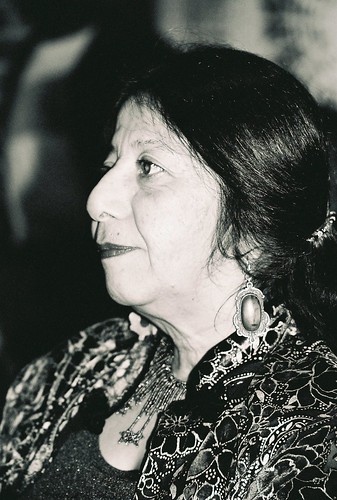
5 by Lorna Dee Cervantes, Drive: the First Quartet
new poems, 1980-2005 (Wings Press, San Antonio, Texas, 2006)
***
More than other evaluative genres of writing--literary criticism, say, or certain forms of food journalism--the book review--with so much shrugging off of its real burden, its reason for being, its reason for speaking--too often yawns beneath its yoke and lies down in its imaginary jungle with its imaginary lion and goes to sleep on the job. But it is the same yoke under which most great travelogue speaks with enormous and laboring complexity, and even then with endless trepidation: the encounter with new x-scapes, the meeting up with Others.
I mean it's a crying shame that book reviewers would choose to be the ugly tourists of their field over choosing to become the Ambassadors. That you would act as if there is little or nothing at stake when you read--
As it turns out, Drive: The First Quartet consists of five separate books, thus raising the nagging question: did someone miscount? Furthermore, if this is the first quartet, and it is actually a quintet, does this mean there will be a second, or even a third, quartet (and will they actually be quintets as well)?Here's a ewe who knows better: "did someone miscount?" You know better. That a quartet is a musical composition designed for four instruments, four voices, (or as in the literary precursor) four directions, four elements, four seasons, four landscapes, etc. That Eliot's Quartets--all four of them--each complicate their existential premise with their five lyric movements. That Drive's claim to "the first" makes a promise towards futurity, yes, but that it also playfully suggests a backward glance towards whence it came, towards where there is no first, not really, inasmuch a response to Eliot in this way either suggests that he has grandfathered the work as it is or that LDC's appropriation and re-formation of the quartet brings a firstness or newness to the projects worthy of the "news" of "new poems," at last, and in which Eliot, we recall, has after all seen for himself whether "the fire and the rose are one" (Little Gidding V.46). For Eliot is dead, and even if he still plays among the living, that doesn't make him first. He's the chicken or egg of this poetry. In his first quartet, "Time present and time past / Are both perhaps present in time future, / And time future contained in time past" (Burnt Norton I.1-3). He plays with your head. He wants you to think about time, memory, and history, and feel undone. Now, why would Cervantes--political historian, grand mother poet, Chicana--do any less given the stakes? (Some point out: "we were here first." Lot of good it did when the guys who arrived by boat said "yeah, but we were really really first.") So the important question to ask isn't "did someone miscount?" or "will there be a second...?" For those are grossly dismissive misreadings. But to ask: among the living and the dead, who's second? Who's last? Who's new? What does firstness mean--especially given its privilege? This is LDC's question. This was Eliot's question also, though he missed its particular urgency:
What we call the beginning is often the endEwe, little lamb, who made thee? Dost thou know who made thee? Were you counting sheep?
And to make an end is to make a beginning.
The end is where we start from. (Little Gidding V.1-3)
***
from Letters to David: an Elegiac Mass in the Form of a Train
for David A. Kennedy 1955-1984
I remember the day Robert Kennedy was assassinated. I remember if better than when the President was shot. I felt it more. I was in the seventh grade, and that was the first year I was ever truly aware of politics or the wars of the world. That was the day the next door neighbor poisoned my pet cat to keep it off her lawn. I remember the sweet smell, like bitter almonds some say, but to me it smelled like she was vomiting rock candy. When I found her I could tell by the way she looked at me that it was too late to save her. I didn't even bother to call anyone. Just held her stiff, wretching body & I remember I didn't cry. I felt solid, smooth, like ice but dry, warm. I remember the sun that June morning. It burned the hairs on my arms & I remember how strange the heat felt, like needles of radiation entering in through the pores of my skin. It was numbing me. I held her on the ground. She was too convulsive to hold in my arms and I tried to tell her that. The ants around us were swarming as if excited by the smell of her cooling flesh. I stopped watching her die and smashed ants. Sick. They were so many frantic kamikazis. I wondered if it was a sin. So much minute life snuffed out could leave a blotch on my soul like murder.
...
That was the day I learned the word: apocalyptic. (Cervantes 190)
***
La Bloga's review of Drive.
William Allegrezza reviews Drive.
The Texas Observer talks with LCD.
Call for Papers: Critical Essays on Lorna Dee Cervantes.
***
&.
***